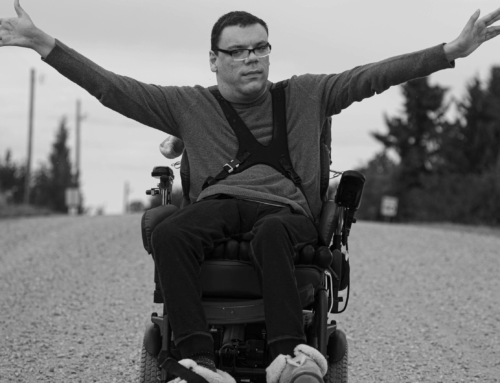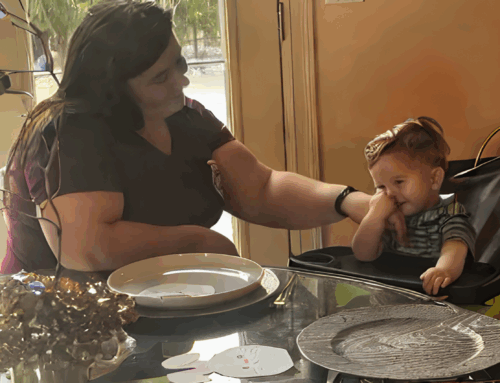This post was originally published on The Banner as part of the In My Shoes column. –Reprinted by permission of The Banner. Jasmine Duckworth, “Doing vs. Being,” © The Banner, June 2023 (158/6), p. 45. thebanner.org/columns/2023/05/doing-vs-being. All rights reserved worldwide.
Last night I did what I do every night as the day winds down, I mentally went through my day and noted all the things I didn’t get done. The list was long. The tasks should have been easy. I felt like I had failed at life, and this was a familiar feeling because this is a familiar routine. Chronic pain, disability-related muscle fatigue, work, family life, and an ongoing worldwide pandemic make it difficult to get things done.
Then I started thinking about neuroplasticity; the idea that our thoughts shape our brain. I know that choosing different thought patterns can reshape my brain so I made the mental switch that I often do, and started listing the tasks I did accomplish.
It felt better but wasn’t enough. Either way I’m equating tasks done with success, which isn’t actually changing the pattern.
I remembered listening to Chantal Huinink speaking at a conference years ago and one of her points has always stuck with me: Just like we can be prone to perfectionism, we can also be hung up on productivism.
That was an “aha” moment for me. Whenever perfectionism has come up as a topic in sermons or seminars I have always felt a bit smug because that’s not a struggle for me. I’m comfortable with things being a bit rough around the edges. I’m okay with things being a tad raw.
But this concept of productivism that Chantal spoke about hit me hard. I am absolutely a productivist. I love lists and crossing things off. I multitask always and my favourite pastime is knitting because it means even my leisure produces something.
This is what I need to rewire in my brain. Being productive is satisfying but is it where I want to derive my self worth? What is more important than productivity?
I remembered a line from one of the training courses at work: “We are human beings, not human doings.”
What does it mean to be a human being? How do I want to be?
I knew the answer immediately.
Love. To be is to love.
So I asked myself, was I loving today?
I mentally went over my interactions with people over the course of the day. Was I loving with my family? My coworkers (through email and video chat)? My friends I saw when we picked up our children from school?
What a difference it made in my mental state as I closed out my day. Rather than feel like a failure, I felt like I had succeeded – and succeeded in a more meaningful way than if I had done the dishes (nope) or folded the laundry (partially).
So this will be my new routine. I will focus on being loving, rather than falling into the trap of productivism, and I will reshape my brain until, hopefully, my very being is oriented toward Love.
“…if I have a faith that can move mountains but do not have love, I am nothing.”
1 Corinthians 13:2




